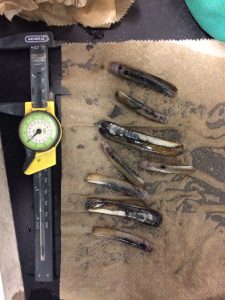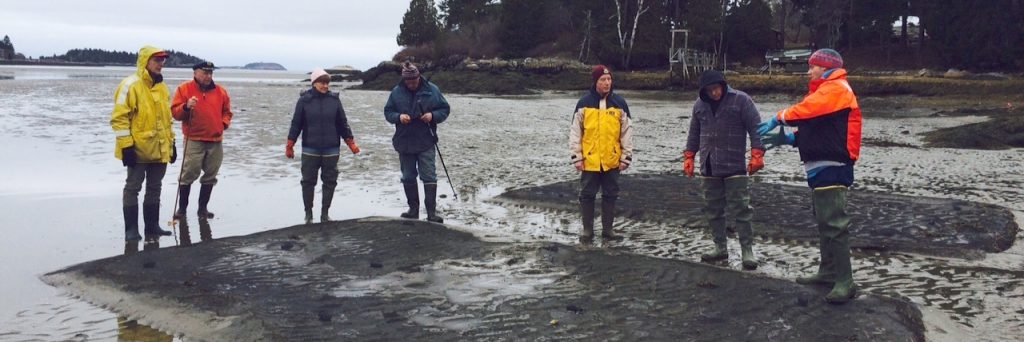Aquaculture at the DMC
Here is a timeline of Aquaculture history in Maine provided by the Aquaculture Research Institute.
More information about marine research in this region is available through this Storymap, published by graduate student Melissa Britsch and director Heather Leslie in 2021.
The DMC has been the site of aquaculture research, specifically shellfish aquaculture, since 1970 when Dr. Herb Hidu was hired by the University of Maine. Hidu established a research program focusing the cultivation of blue mussels and oysters at the DMC which was instrumental in establishing the aquaculture industry in the Damariscotta River. Today, seven of the nine shellfish farms on the Damariscotta River have ties to the DMC.
The Damariscotta River’s clean, salty, and nutrient-rich water is ideal for growing shellfish and over 80% of oysters produced in Maine are grown on the Damariscotta River.
Aquaculture research at the DMC occurs both in the laboratory and in the field. The flowing seawater laboratories, shellfish hatchery, and experimental lease sites in Lowes Cove provide spaces to investigate the biology and ecology of diverse, commercially valuable shellfish species.
DMC scientists are working statewide and beyond to investigate the best ways to farm seafood in Maine waters.
 Though oyster-related research has been a major focus – including projects ranging from genetics to biofouling to disease, additional DMC aquaculture studies have included:
Though oyster-related research has been a major focus – including projects ranging from genetics to biofouling to disease, additional DMC aquaculture studies have included:
- hatchery and growout technologies and strategies for sugar kelp,
- blue mussels, softshell and razor clams,
- Maine adaptation of the Japanese ear-hanging method of growing scallops,
- effects of ocean acidification on Eastern oysters,
- longline production of oysters
Industry-research partnerships continue to thrive at the DMC in business incubator space coordinated by the DMC and Maine Aquaculture Innovation Center (MAIC).
Our decades-long presence in aquaculture research and innovation has helped to make aquaculture a valuable industry in Maine, and current projections indicate strong potential for further growth throughout the state. UMaine researchers work closely with industry and community members on aquaculture-related research, to ensure that aquaculture can continue to be a sustainable and viable industry for Maine’s working waterfront communities, and the marine environment that supports us all.

